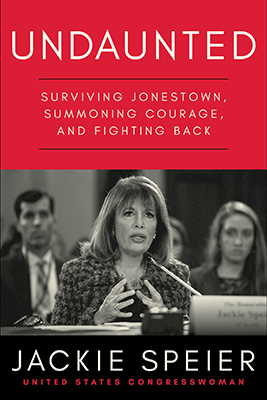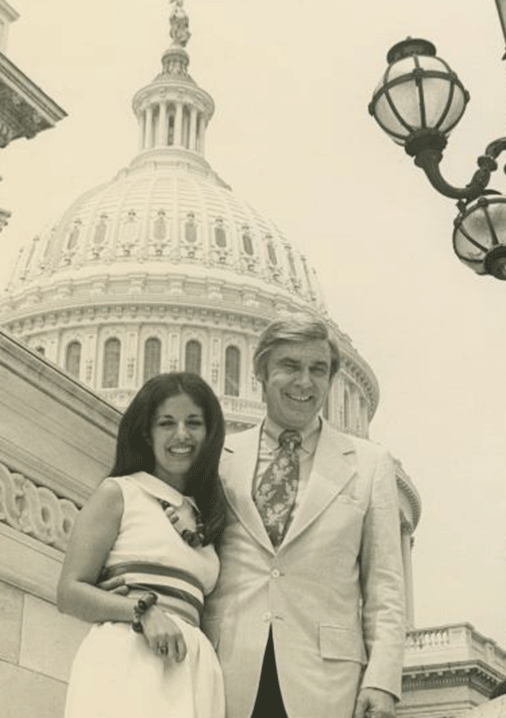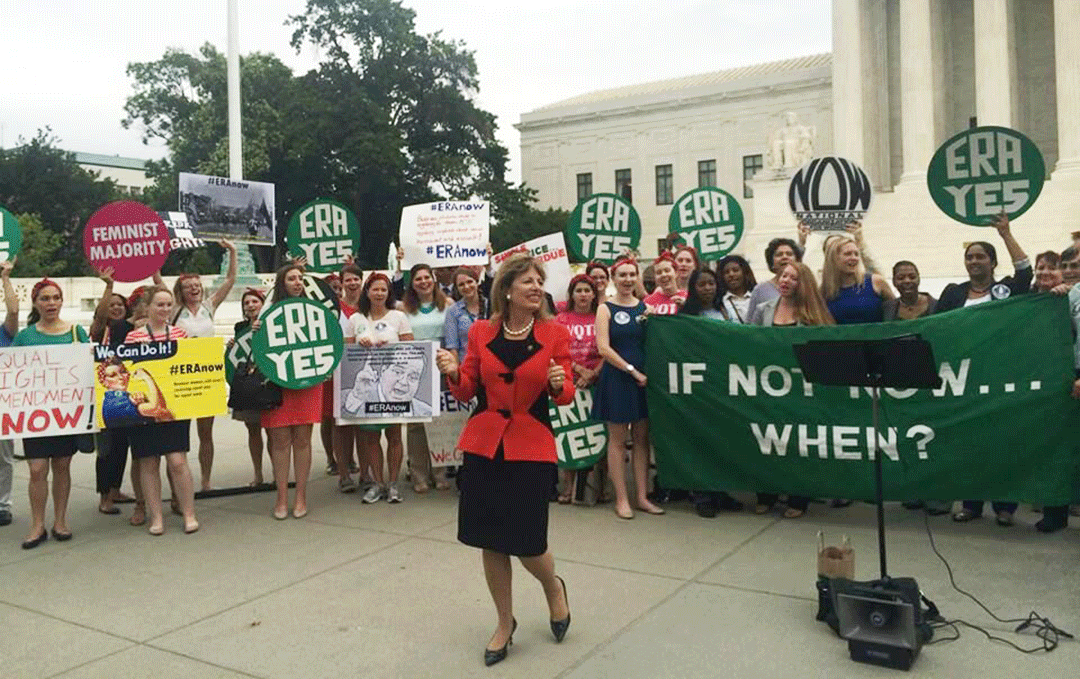In her memoir, Undaunted: Surviving Jonestown, Summoning Courage and Fighting Back (Little A, 2018), U.S. Rep. Jackie Speier ’72 recounts the most difficult experiences of her life.
The congresswoman from San Francisco was famously shot five times outside of Jonestown while on a congressional delegation as a staffer for Rep. Leo Ryan in Guyana in 1978. She lost her husband in a car accident when she was pregnant with her daughter in 1994. She recounts other deeply personal stories in the book.
Still, she said, the story is one of resilience aided by the support of family and friends and her own inner strength. And through the writing process a deeper appreciation for her parents, who encouraged her to pick UC Davis for her undergraduate education.

“I was the first in my family to go to college, and my parents were very supportive,” Speier said. “And the truth was I was very lucky to have them and am very much a part of them. That was an epiphany I probably would not have had had I not written the book.”
Her perseverance empowered her to pursue a career in politics, rising up through the California legislature and ultimately winning a seat in the U.S. House of Representatives in 2008. She recently spoke with UC Davis Magazine editor Jocelyn Anderson about her extraordinary life.
Why did you want to write a memoir?
For my kids, actually. I wanted them to be able to look back after I’m long gone and read about their mom and smile. But it’s a book about resilience. I wanted it to be a blueprint for people who have endured difficult experiences in life or who are in the process of coping with very challenging times to be able to refer to this book and see that there are pathways to overcoming, literally, the most heinous experiences, the most traumatic experiences. And do more than just struggle through it. There are ways of truly thriving.
You previously co-wrote This is Not the Life I Ordered. Is that one also about perseverance?
That looks at the stories of lots of women. The interesting thing is that it’s being republished this year by the publisher and Barnes & Noble because they wanted a refresh. That book was published in 2007. This time, we had each of our kids write about their experiences over the last 10 to 15 years as they’ve gone through our experiences as well. It’s helpful, because I know when I was a young mother with two kids, trying to make my way in life alone, I just wondered would we be able to do it? Would these kids be scarred? Would they be able to fashion a life that would make them feel complete? And so it was fun to be on this end of it and have them write about it and hear their perspectives. With both my kids I learned things I didn’t know.

This book was timed with the 40th anniversary of Jonestown. What does that milestone mean to you?
It’s like it happened to another person. That length of time — I can still look down at the scars on my body and identify with it, but there’s a lot of life I’ve lived since then. For me, the silver lining of that horrific cloud was that I survived and got to continue to live a life that has been really full. [But] it took time. I certainly had the instincts two months after I was shot that I didn’t want to spend the rest of my life as a victim of a shooting in Guyana. I wanted my life to be about something other than that.
What is it like to be asked about this experience so frequently?
Everyone kind of focuses on Jonestown because it was an international event, and it’s hard to imagine that so many people could lose their lives. Outside of 9/11, it’s the largest group of Americans ever killed. But the most tragic story [for me] is the story of my husband being killed when I was pregnant with my second child. That one almost did me in. That one took me to my knees. It was very hard to get over.
What is your best advice for perseverance?
I think it’s [faith, family and friends], coupled with building that reservoir of resilience that we all have but oftentimes ignore. I think there were times when I did not want to get out of bed. I gave myself permission not to get out of bed. I also gave myself the responsibility to get up the next day. That helped. You have to give yourself permission to wallow sometimes. I had this sense of foreboding and drowning in quicksand. Then my father tells me, “Get over it.” It was such a powerful message. We have to get over it. We have to move on. And we can. We absolutely can.
You majored in political science at UC Davis. Did you know what you wanted to do back then?
I certainly had that interest. I thought I would go on to law school, which I did. I was in awe of the legislative process, but I never thought I had what it took. That’s another thing that’s important for young people to know: None of us thought or think we have what it takes. And we succeed, in part, because we keep persevering.

What do you remember most about your undergraduate years?
When I was going to college, you didn’t get to choose. Your parents told you where you could apply and that’s where you applied. I applied to Stanford and UC Davis, because my parents thought UC Berkeley was too radical. I got rejected from Stanford and got accepted to UC Davis. So that’s where I went. As it turned out, it was perfect. I was exactly where I should have been. And so I speak about the plan that exists for each of us. And sometimes we don’t understand it at the time. Years later we have these aha moments. I was 20 minutes from the state capital. It was the path for me. And yet, had I not gone to UC Davis, I probably would have taken a very different path, and maybe not as fulfilling so it all worked out.
As a lawmaker, you are very focused on women’s issues. Why are those issues especially important to you?
When I got to the state legislature, my campaign consultant said, “You really need to move on to other issues.” I started to do that until I realized, “What male state legislator is going to care whether contraception is covered in a prescription drug benefit? Who is more concerned about the fact that we have a statute of limitations on rape than the victims who are typically women?” It became a focus when I was on the Board of Supervisors. Economic equity is one [issue] that I spent a lot of time on. And reproductive health. It has carried me through in Congress. Today, for instance, we have mandatory training on sexual harassment in Congress. I did that in the state legislature. Now we’ve got a Pink Tax Repeal Act that we’ve introduced in Congress to prevent [gender-based] goods and services from being surcharged for women.
In the book, you address the difficult transition from state government to Washington, D.C. How do you manage to work through that system?
You try to find ways of creating change differently. There’s a very powerful megaphone that exists on the House floor that is not nearly as impactful as the assembly or senate floor in California. Certainly it doesn’t reverberate across the country as easily as if you are speaking on the House floor. So you have a much larger megaphone.

A shorter version of this Q&A appeared in the spring/summer 2019 issue of UC Davis Magazine.
